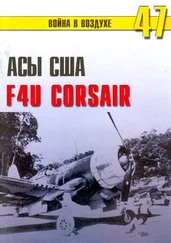‘And how do you set this trap?’
‘The Frenchmen receive a note from Iphrahim Cohen, a note apparently smuggled in from Algiers. In the note Cohen writes that he has heard about the Chevalier’s capture and has made arrangements for the Chevalier to regain his freedom before his identity is known. The note will contain details of an escape plan, the time and place.’
‘And why would the Chevalier – if he is indeed in disguise among the prisoners – trust the note and not suspect a forgery?’
‘Because the note will contain certain details known only to the Chevalier and the Cohens. I can supply those details.’
Maimaran reached up to readjust his black cap more comfortably before commenting quietly, ‘For someone who has never met the Chevalier face to face, you seem very sure of what is in his mind.’
‘If the trap fails, I will accept full responsibility for whatever goes wrong. There will be no mention of the Cohens or a forged letter. I will confess that I was paid by the Frenchmen to arrange their escape. But if the plan works, the Chevalier will have confirmed his identity.’
‘I take it that you are proposing that I connive at the flight of one of his majesty’s prisoners by helping forge this letter and then delivering it as if it came through the Jewish community?’
‘Yes. It is the only way. Everything must be done properly. The French must not suspect anything, until they fall into the trap.’
Maimaran weighed up the young man’s suggestion, then enquired, ‘You realise, don’t you, that even if your plan succeeds, you are asking me to compromise my relationship with my fellow Jews in Algiers? If word of this scheme gets out, the Cohens will regard me as someone who forges their correspondence for my own purposes.’
Hector’s answer was sure and steady. ‘The Emperor promised me that he would arrange the release of a member of my family if I served him well. If I deliver into his hands the Lion of La Religion, I will have sacrificed a Christian who is a hero to many of his own people. I will be doing this for the sake of my captured sister.’
Maimaran already knew of Hector’s audacious request to Moulay Ismail for help in finding his captive sister. The young man’s reckless bravado had been court gossip for several weeks. There was something about the strength and sincerity of Hector’s resolve which made the old man say, ‘Very well. I will prepare that forged letter if you supply the necessary details that make it seem authentic, and I will make sure that it reaches this man Piecourt. But if your scheme goes wrong, I will deny all knowledge of it . . .’
‘I cannot thank you enough,’ Hector began, but Maimaran held up a hand to stop him. ‘Naturally I also expect some recompense for my cooperation. If the Chevalier is not a myth but a real person and is taken into custody, then I want you to give up any interest you may have in the negotiations for his full ransom which, as you say, should be very, very substantial. I alone will conduct those negotiations, and take the appropriate commission.’
‘You have my word on it,’ Hector assured him. ‘All I want is to track down my sister and obtain her release.’

AT MIDNIGHT immediately before the next new moon Hector found himself crouching with Dan at the foot of the rampart around the palace compound. He was breathing through his mouth and with shallow breaths. The ditch which ran along the outer face of the wall was used as a rubbish dump and the stench was appalling. The rotting carcasses of dead animals lay half-buried among pieces of broken pottery, discarded rags and all manner of unidentified nastiness. To make matters worse, the ditch was also a lavatory for the slave workers who by day had been repairing the wall above him. Hector feared that he had just rested his bare hand on a soft smear of recent human excrement. The advantage, he reminded himself, was that the ditch was so foul that it was avoided by the guards who occasionally patrolled the perimeter of the palace. Forty yards to his left Karp and Bourdon were also hidden. Diaz and his Spanish cavalry friend Roberto lay in wait in the opposite direction.
‘We don’t know exactly where Piecourt and the others will attempt to cross, so we need to cover as broad a section of the wall as possible,’ he had told his companions that morning. ‘I expect they will use the ladders which I saw in their cell to scale the inner face of the wall. Once on top of the wall, they will be able to dangle a rope on the far side and descend. The most likely place is where they themselves have been working during the day on their slave shift. They were repairing a section where the baked earth facing is crumbled away, and here the damaged wall offers a series of footholds. Once they are safely down, they only have to get across the ditch at the foot of the wall and then make their way to one of the villages in the valley. They will be expecting to meet a guide who will take them across country to the coast where a ship will be waiting to pick them up.’
‘What makes you think that they will attempt their escape this evening?’ Diaz had asked.
‘Because there is no moon, and because tomorrow is the feast day of one of the local marabouts or holy men so the Muslim guards will be preparing their celebrations.’
‘What happens if a whole gang of prisoners swarms down the ropes? There are not enough of us to deal with all of them.’ It was Diaz’s cavalry friend Roberto who spoke. He was checking over the pair of pistols that Hector had provided, weapons Hector had borrowed from the Arsenal without consulting Sean Allen.
‘There should be only three men, perhaps four,’ Hector had reassured the Spaniard. ‘In the letter they have received, they have been told that the guide refuses to take more than three men at a time because a large group would be too noticeable as it made its way across country.’
‘Let’s hope the Frenchmen heed that advice,’ the Spaniard had grunted. ‘I don’t fancy facing a whole lot of them with just a pistol in my hand and no back-up.’
‘Try not to harm any of them,’ Hector had reminded him. ‘We want to take them alive.’
As the hours of darkness had dragged past, Hector was becoming aware of a flaw in his plan. He had failed to take into account the incessant howling and barking of the city’s population of dogs. As one pack of dogs fell silent, another group started up, filling the night with their clamour of useless noise and evoking a counter chorus which slowly faded away, only for some lone animal to howl plaintively and start the whole process over again. The racket made it impossible to hear the sounds of anyone who might be scrambling down the wall across the ditch from him, and the face of the wall was so obscured in the gloom that his eyes played tricks on him. Several times he had imagined a shadowy movement, only to be disappointed when, after a long interval, all remained dark and still.
Beside him Dan seemed impervious to the long wait. The Miskito was squatting on his heels, not moving. Hector, by contrast, was obliged to shift his legs from one position to another whenever he felt the first warning twinge of cramp. And as the wait grew longer, Hector grew more and more fretful. He had expected something to have happened by now. He wondered if Piecourt and the others had become suspicious of the note they had received, or if they had decided it would be better to wait for the Franciscans to arrange their ransom. He looked up at the stars, trying to calculate how long he and his companions had been lying in ambush. It was a clear night with only a few shreds of high thin clouds, and he could easily identify the constellations he had studied on the star globe in Turgut Reis’s library. It seemed so long ago that he and Dan had been held in the Algiers bagnio and discussed the possibility of their own escape. Now he was trying to prevent the escape of others. Everything seemed to have assumed a different shape. Back in Algiers he had told himself that he must survive the bagnio so that he would be free to track down his sister Elizabeth. Yet he had always known such an ambition was a fantasy. Now, however, he found that he was allowing himself to believe genuinely that he might locate her. He struggled to justify the reason for this new hope. Partly it was because he knew from Sean Allen that Hakim Reis’s ship might put into port one day, and he would have the chance to interview her captain. Yet there was something else which was making him more optimistic: he sensed that at last he was gaining control of his own fate, albeit slowly, and that he was no longer at the mercy of others.
Читать дальше









